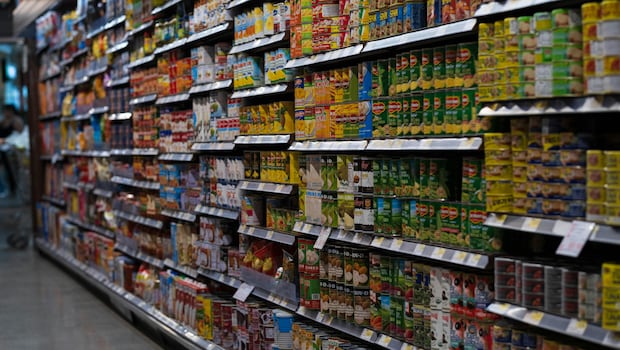There is a clear shift happening in how people choose their food these days. More and more consumers are leaning towards clean-label food products made with natural ingredients and fewer artificial additives. This growing demand for clean label and healthier food options is changing the food industry worldwide. What is driving this movement? Simple. People want to be healthier, they want transparency in food labelling, and they are increasingly suspicious of artificial chemicals. Brands can no longer get away with confusing ingredient lists full of unpronounceable words. Consumers prefer foods with straightforward, natural ingredients. This is not just a fad - it is a serious change in what people care about, and it is shaking up the entire food market.
Also Read: Starting Your Clean Eating Journey? First Make Note Of These Key Tips Shared By A Nutritionist
Natural Ingredients Are the New Cool

Several factors explain why people are moving away from artificial food additives, with health concerns leading the pack. Research shows certain artificial sweeteners might harm the gut microbiome (International Journal of Environmental Research and Public Health). Preservatives like nitrates and nitrites, often used in processed meats, have been linked to a higher risk of colorectal cancer. With this info just a click away, it is no surprise people are hungry for natural alternatives.
Health and Trust Drive Food Choices
Consumers are not just looking for healthier food; they want to trust what they eat. A 2025 report showed that 74 per cent of consumers consider ingredient transparency important when buying food. Complex ingredient lists with many artificial substances break that trust. Clean label products offer shorter, simpler lists that focus on natural ingredients without preservatives.
Key points here:
Consumers want to know where their food comes from and how it is made.
Transparency is as important as the absence of artificial additives.
Brands are forced to reformulate products and communicate clearly about sourcing.

Photo: Pexels
Clean Labels Are Changing the Food Market
The financial impact of this shift is huge. The clean label ingredient market is expected to reach USD 69.3 billion by 2029, driven by demand for natural ingredients, organic additives, and preservative-free options. The natural food preservatives market alone was valued at $0.5 billion in 2023 and is forecast to grow at a CAGR of 6.9 per cent, reaching $1.1 billion by 2033. The global wellness foods and beverages market contributes a large chunk to the $1.8 trillion wellness market (McKinsey & Company, 2024). This forces food makers to innovate and replace synthetic ingredients with natural ones.
Clean Label Appeal Cuts Across Generations
Clean label products are not just a Gen Z or Millennial thing. Sure, about 66 per cent of these younger consumers are willing to pay more for them, but older generations are jumping on the bandwagon too. The ‘Health-Conscious Consumer' segment pays attention to nutrition, fitness, stress, and even environmental impact. Research suggests:
90 per cent of consumers want to eat healthily at least some of the time.
63 per cent eat healthily most or all of the time.
India's natural and organic food market is expected to hit $8.9 billion by 2032, signalling rising health awareness.
Also Read: Clean Eating and the Need to Grow Your Own Pesticide-Free Vegetables
Healthy and Sustainable Snacking Is the Future

Healthy snacks like veggie chips, dried fruits, and granola bars are taking over the shelves. Instead of chips and cookies, people are reaching for better options. This shift is expected to push the healthy snack market to a value of $152 billion by 2029. Date-sweetened products are also trending, with many new launches in the last year. Other key growth areas include plant-based foods, projected to reach $77.8 billion by 2025, and functional foods focused on brain health with antioxidants and omega-3s. Products aimed at cognitive protection have grown notably.
What It All Means for the Food Industry
In short, consumers today are informed, active, and confident in their food choices. They reject synthetic chemicals due to health concerns and want brands to be open and honest. They prefer ingredients that are simple, natural, and easy to recognise. This is not a passing trend but a major shift in consumer behaviour that will have a long-term impact on the food industry. Manufacturers must respond with cleaner, transparent products and new ideas. The modern food revolution is finally here, and it is all about health and natural foods.
About the author: Aashutosh Agarwal is the CCO of Zuari International.






